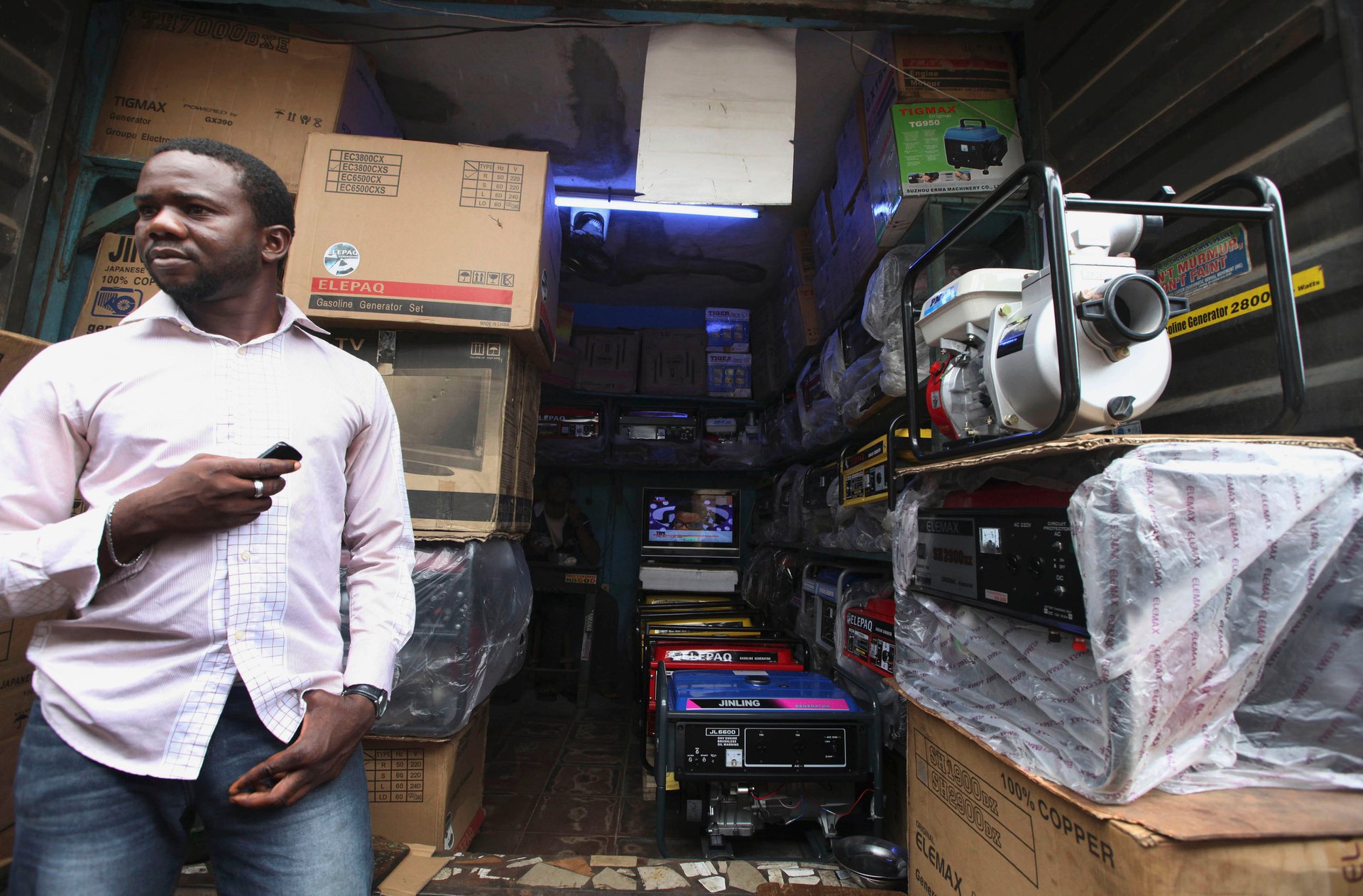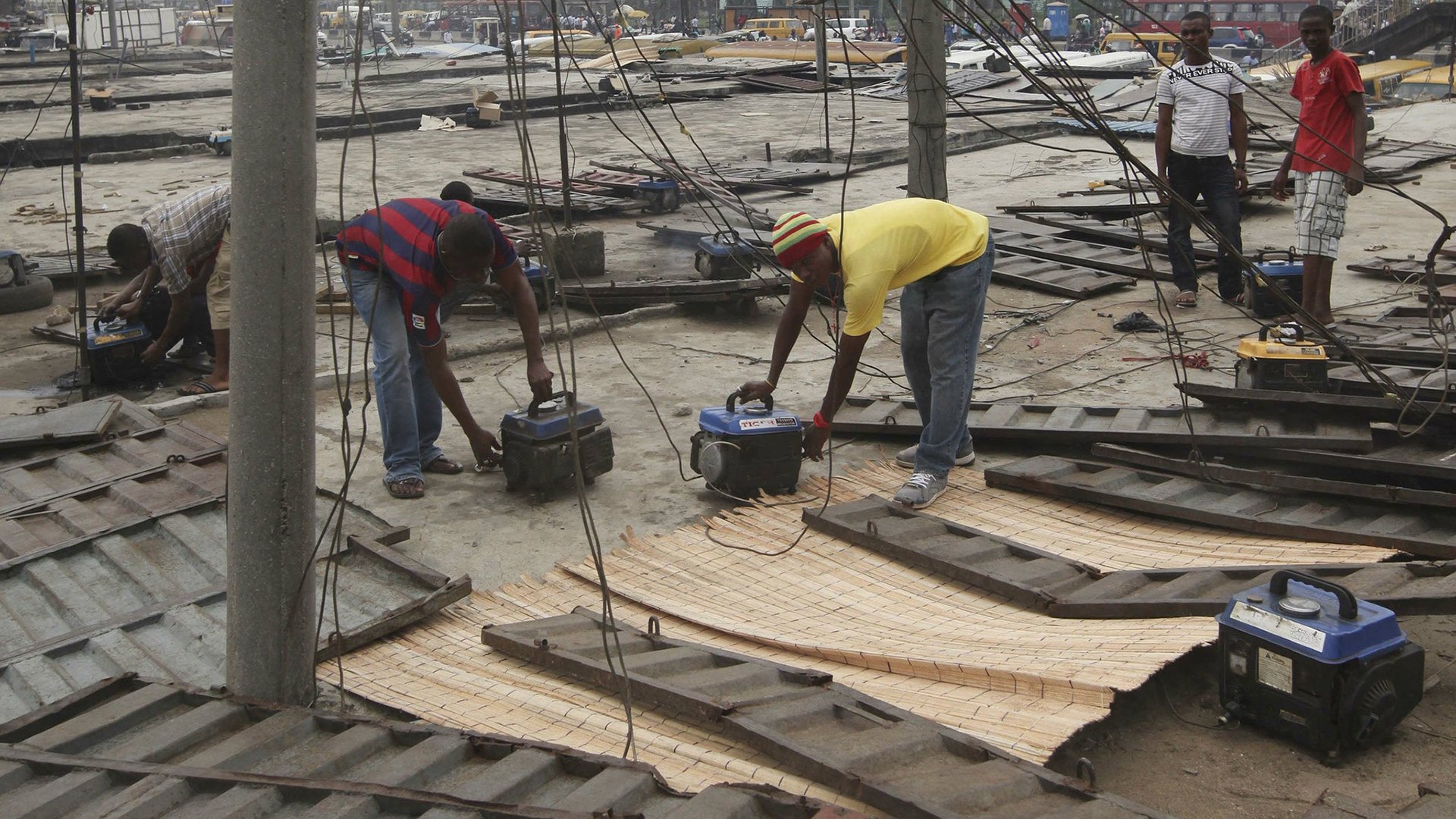The coronavirus lockdown in Africa’s largest city opens the door to increased generator pollution
Three days before a lockdown came into effect in Lagos, Nigeria’s largest city, Esther Miller, a 23-year-old user interface designer, purchased 150 liters of petrol in anticipation of having to use her generator a lot more.


Three days before a lockdown came into effect in Lagos, Nigeria’s largest city, Esther Miller, a 23-year-old user interface designer, purchased 150 liters of petrol in anticipation of having to use her generator a lot more.
With Nigeria’s struggling national grid lacking in capacity to power the entire country, generators—especially small, low cost models with tank capacities of just four liters—have become an ubiquitous alternative for power despite a ban on mass importation.
Given unreliable electricity supply, having citizens staying home amid a lockdown to curb the spread of coronavirus likely means millions of electricity generators will be working overtime to power homes, worsening pollution in residential areas.
It’s a reality that runs counter to happenings in other parts of the world. With fewer people commuting in cities, fewer factories pumping out waste and fewer city centers being populated, there has been a positive effect on emissions. In China, carbon emissions dropped by an estimated 25% while India has seen air quality improve notably in some of its biggest cities. Europe has also seen major reductions in nitrous oxide gases.

While Lagos’ deserted highways and erstwhile bustling business districts mean lower vehicular and industrial emissions, research shows the increased use of generators likely means an uptick in air and noise pollution.
As a measure of the scale of the use of generators, researchers at the department of engineering and public policy at Carnegie Mellon University found backup power generation in Nigeria produces carbon dioxide emissions equivalent to 60% of its annual electricity sector emissions. Nigeria is home to 23 million small gasoline generators which have a capacity that’s eight times larger than the national power grid, according to conservative estimates by Access to Energy Institute (A2EI), a German-based non-profit.
There are also thousands of wealthier households with much larger diesel-based generators which are even worse for the environment.
Amid the lockdown, with vehicular movement, including public transport, virtually grounded, attendants at several fuel stations in Lagos, confirm to Quartz Africa that a majority of purchases are coming from individuals buying in jerrycans to fuel generators.
But the increased usage of generators during the lockdown is also a cyclical effect of attempts to keep the economy afloat as, in a major shift in Nigerian work culture, businesses are asking employees to work from home. Aware of the country’s electricity situation, some companies are providing stipends to cover extra generator costs.
Tope Adepoju, a graphics designer who lives on the outskirts of Lagos says his generator has stayed running to power his work devices for much of this week at a higher than usual cost. “I would be spending more if they allowed us put generators on overnight in my neighborhood,” he says.
The bad news for Nigeria is that air and noise pollution from generators will last much longer than the lockdown will. A2EI forecasts steady increase in demand for generators over the next decade amid Nigeria’s population spurt and slow progress in finding alternatives.
Sign up to the Quartz Africa Weekly Brief here for news and analysis on African business, tech and innovation in your inbox